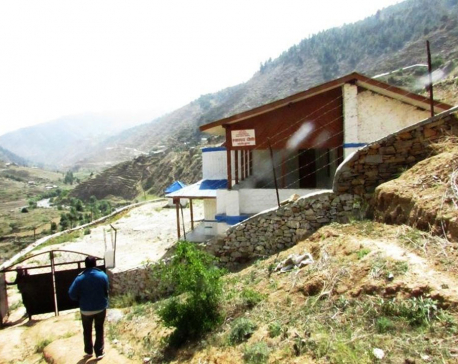
OR
Indiscriminate use of antibiotics poses serious threat
Published On: December 10, 2023 06:33 PM NPT By: Pabitra Sunar

KATHMANDU, Dec 10: Fever can arise from bacteria, viruses, or fungi. Infections from these sources can lead to mild or severe fever. While some infections can resolve naturally, others require treatment. Prescribing antibiotics should be based on specific tests to determine the germ causing the fever. Administering antibiotics without proper testing might not effectively combat the germs or viruses responsible. Moreover, this practice can contribute to antibiotic resistance, reducing the body's ability to fight diseases, and in severe cases, it can be fatal.
In Nepal, a considerable number of individuals use antibiotics without proper testing or prescriptions. Experts highlight that this practice leads to patients developing resistance, even within healthcare facilities, due to treatment without antibiotic susceptibility testing.
Doctors emphasize that resistance has surged due to patient behaviors like self-medicating for colds and purchasing antibiotics without prescriptions. Additionally, pharmacies contributing to this issue by providing antibiotics to patients without proper guidance has also been highlighted.
According to Dr Dhruv Gaire, a Senior Physician at Bir Hospital, the patients who come to Bir Hospital as a referral have already taken untested antibiotics given by the pharmacy.
Gaire said that problems also arise due to not taking the full dose of antibiotics taken from the pharmacy. Gaire said that there is no practice of testing for new infections, apart from what is in practice in government and private health institutions in Nepal.
There are numerous viruses, fungi, and germs that simply can't be tested. The lack of awareness among the public and pharmacies about antibiotic use remains a significant challenge,” said Gaire.
He said, “There are many patients who come to Bir Hospital after using antibiotics indiscriminately, and due to this practice, proper treatment has been delayed.”
Shukraraj Tropical and Communicable Disease Hospital Research Branch Head Dr Sher Bahadur Pun said that it is not a common practice to test new fever affecting many people in Nepal. "At least there should be a system to detect germs or viruses when many people experience fever, which is still not available in Nepal," he said.
The absence of research means that infectious fevers occurring in different seasons aren't identified until patients are discharged from the hospital.
“Tests for typhoid, dengue, and COVID are conducted, so we should also search for influenza to determine its presence," he suggested.
Pun said that if there is no antibiotic susceptibility test for any infection, any new disease can become a big threat.
Dr Megh Raj Banjara, a microbiologist from Tribhuvan University, expressed concern that the rising resistance due to antibiotic use without susceptibility testing could lead to a crisis not only in Nepal but globally. He said that there is the absence of a system to check antibiotic susceptibility even in primary health centers, small private health centers, and some critical district hospitals in Nepal.
“Even now in Nepal, there is no system to check antibiotic susceptibility even in primary health centers, private small health centers, even in some critical district hospitals”, Dr Banjara said.
“Due to limitations in lab facilities and human resources across all health centers, the government finds it challenging to conduct antibiotic testing. However, there's a suggestion for an alternative approach: the government could create an annual separate directory to address this issue effectively.
The resistance rate would decrease if there are guidelines established by reviewing commonly prescribed antibiotics for prevalent diseases and if every health institution adheres to these guidelines.
Despite the observed rise in biological immunity in many people due to the widespread use of antibiotics without susceptibility testing in Nepal, comprehensive data on this phenomenon hasn't been released yet” said Banjara, “However, some hospitals have already conducted studies on antibiotic resistance.”
You May Like This

Health Ministry directs health professionals to stay away from protest
KATHMANDU, July 13: Ministry of Health and Population has directed health professionals not to involve in any forms of protest. Read More...

Health workers threaten to shutdown health services in Jumla
JUMLA, June 8: Health workers said that they’d be forced to disrupt all health services in Jumla if the government... Read More...

Ministry of Health suspends 18 health workers for obstructing Polio vaccine program
KATHMANDU, March 5: Ministry of Health on Sunday suspended 18 health workers, including three district health office chiefs, on the... Read More...







Just In
- NRB to provide collateral-free loans to foreign employment seekers
- NEB to publish Grade 12 results next week
- Body handover begins; Relatives remain dissatisfied with insurance, compensation amount
- NC defers its plan to join Koshi govt
- NRB to review microfinance loan interest rate
- 134 dead in floods and landslides since onset of monsoon this year
- Mahakali Irrigation Project sees only 22 percent physical progress in 18 years
- Singapore now holds world's most powerful passport; Nepal stays at 98th











Leave A Comment